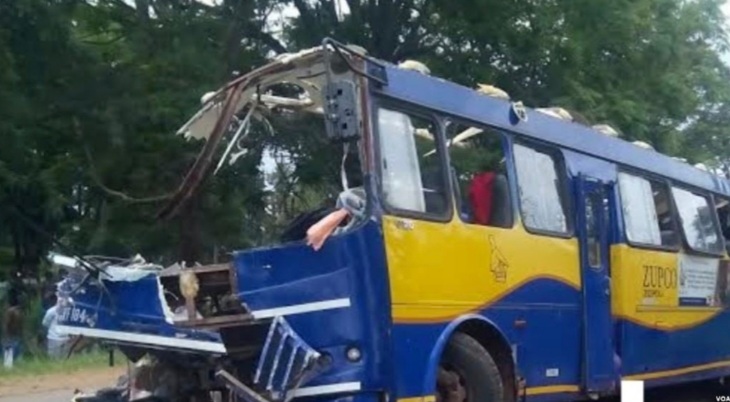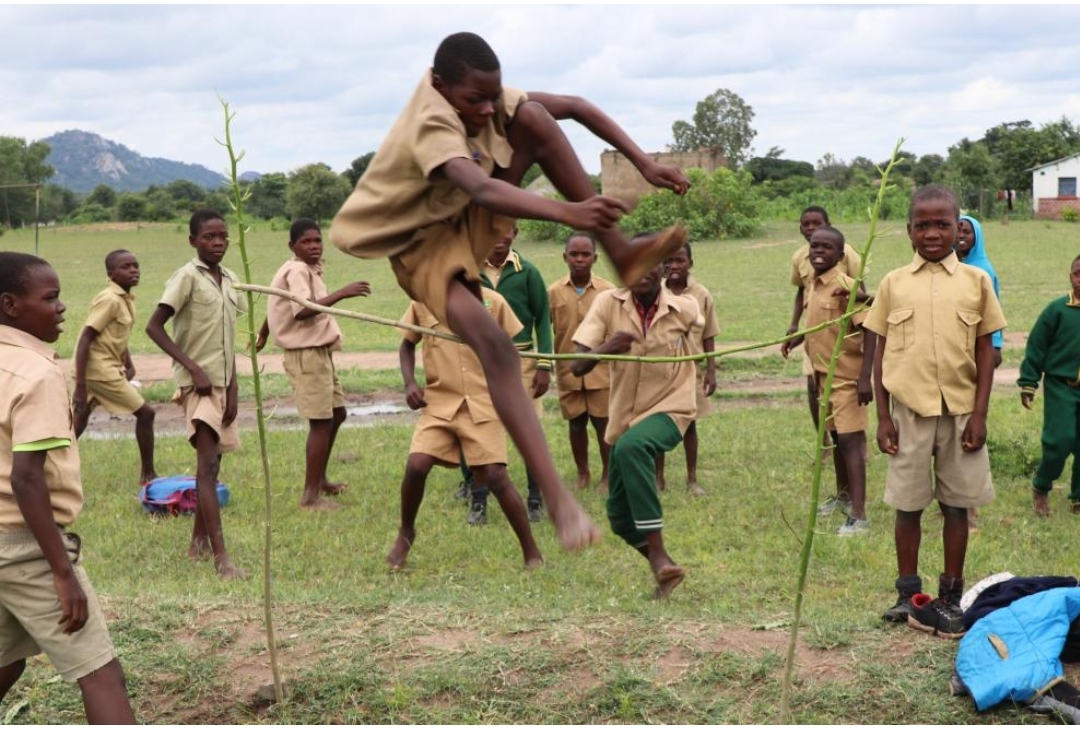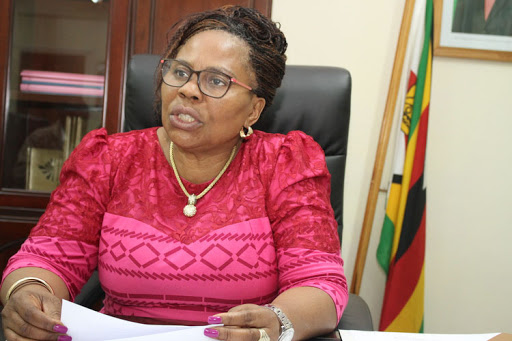A recent report by the United Nations Economic Commission for Africa and United Nations Economic Commission of Europe revealed that Zimbabwe had the highest road crash fatality in southern Africa.
Below is a detailed statement by the United Nations by the two commissions explaining why more people are dying on Zimbabwe’s roads.
Zimbabwe’s road crash fatality rate increased from 1,836 in 2016 to an average of 2,000 deaths per year – over five deaths per day – from 2017 to 2019, according to the Traffic Safety Council of Zimbabwe (TSCZ).
In reality, this figure may be over three times higher at some 7,000 road deaths per year, according to WHO estimates that also account for victims who die on the way, in hospital or after discharge.
The annual crash death rate is expected to triple in the next 10 years in the absence of concerted action and significantly increased commitment by all stakeholders, warns the United Nations Road Safety Performance Review of Zimbabwe.
To address this national crisis and key development concern, the review provides the government with targeted recommendations for decisive action.
“With the second United Nations Decade of Action for Road Safety 2021-2030 underway, Zimbabwe has the opportunity to head in the right direction to achieve the goal of halving road traffic crash fatalities and injuries by 2030.
“With increased political and financial commitments from all stakeholders, the country can turn this situation around, guided by the recommendations of this review”, said the UN secretary-general’s special envoy for road safety, Jean Todt.
Worldwide, 1.3 million people are killed every year from road crashes and over 50 million are injured, with Africa recording the highest fatality rates per million inhabitants.
“Among key measures, I urge the government of Zimbabwe to become contracting party to and fully implement the seven core United Nations Conventions on road safety, the African Road Safety Charter, and the African Pan African Trans-Highway Agreement”, added Todt.
“Africa’s post-2020 strategic directions for road safety as well as the continent’s action plan for the period 2021-2030 are useful tools to address Zimbabwe’s road safety challenges as they are aligned with common challenges faced by African countries.
“Of course, the recommended actions in continental strategies and plans should be further tailored to Zimbabwe’s specificities”, said UN under-secretary-general and executive secretary of UNECA, Vera Songwe.
“The private sector could also play an important role to curb deaths on Zimbabwe’s roads.
“This could be through involvement in operating vehicle inspection centres, upgrading roads to improve their safety, and financing road safety initiatives.
“Financing road safety provides clear opportunities for impact investments that would not only save lives but potentially generate economic returns.”
The review, requested by the Government of Zimbabwe, was conducted in partnership with the United Nations Economic Commissions for Europe (UNECE) and Africa (UNECA) with support from the United Nations secretary-general’s special envoy for road safety.
The review provides a detailed assessment of the road safety and management capacity situation in the country, and pinpoints concrete measures to save lives.
From safer infrastructure to addressing risky behaviour, system-wide efforts are needed
According to the Zimbabwe Road Conditions and Inventory Report in 2017, unsafe road infrastructure is a major issue, with 70 percent of the total road network in poor to mediocre condition, and merely 25 percent in good to very good condition.
Furthermore, the increase of 77 percent in the number of vehicles from 2010 to 2019 has not been accompanied by any meaningful road upgrade or maintenance of existing road infrastructure since independence in 1980.
The review therefore recommends the adoption of a roads and maintenance improvement programme.
It also calls for the implementation of road safety audits and assessments, especially in urban areas, where ensuring the safety of vulnerable road users – pedestrians, cyclists and two-wheelers – is a particular priority.
WHO reports that an estimated 2,000 pedestrians were killed by motor vehicles in Zimbabwe between 2013 and 2016, while an estimated 30,000 were injured.
The review points out that Zimbabwe currently does not have an up-to-date framework to monitor and evaluate road safety performance.
Because of gaps and misclassifications in road safety data availability and accuracy, the review stresses the need to create an integrated and coordinated database as a priority to inform action.
It also recommends road safety awareness programmes for road users in rural areas, targeting young road users.
The national traffic police in Zimbabwe requires equipment and technology to provide relevant metrics for measuring speed and alcohol or other substances to create data admissible at law.
The national traffic police is constrained by limited funding as well as by inefficient database and information management systems.
This means that cities and towns lack traffic enforcement and surveillance, making all urban road users highly vulnerable.
Strengthening enforcement frameworks and practices with the review of legislation and standards, as well as benchmarking against regional and international good practices and United Nations conventions, are among priority interventions recommended by the review.
Robust institutions as a basis for safety
Zimbabwe’s legal framework offers a strong basis for road safety. However, its enforcement has come under increasing threat of ineffective practices.
The review recommends strengthening the enforcement framework, resourcing, and dealing with corruption, through measures including the urgent development of a “whistle blowing” reporting system managed by enforcement agencies and the Zimbabwe Anti-Corruption Commission (ZACC).
Although the TSCZ represents the overall road authority to provide safety policies across local governments, road safety management has not been politically championed nor elevated to a human development concern.
Strengthening the role of the lead agency, the championship by the TSCZ, the adoption of a national road safety strategy and a multisectoral action plan, including acceding to United Nations conventions, are among recommended priority interventions.
The review recommends amending the law to require vehicle inspection and certification of vehicle roadworthiness for all vehicles, in alignment with international and regional good practices.
Zimbabwe’s public health care and emergency care services face severe institutional, human resources, financing, and technical capacity constraints.
Instead of stabilising the number of deaths and mitigating the seriousness of injuries, the system is assisting only a fraction of those who have good chances of survival and recovery from serious injury.
Thus, the review recommends establishing emergency medical services and emergency responses policy, laws, lead agency, and guidelines in line with WHO guidelines, including a common three digit national emergency call number, as well as education for the public.
About the United Nations secretary-general’s special envoy for road safety
Appointed by the United Nations secretary-general in April 2015, the role of the special envoy for road safety is to promote a global partnership to support the design and implementation of strategies and activities to improve road safety; to advocate with governments, civil society and the private sector for the promotion of road safety, particularly in countries with high level of road fatalities and injuries; to participate in global and regional conferences and meetings on road safety; to advocate the accession to, and more effective implementation of, United Nations road safety legal instruments; and to generate adequate funding for advocacy efforts through strategic partnerships between the public, private and non-governmental sectors.
The special envoy is supporting the RSPRs in Africa giving that it is one of the most affected regions.


 Slider1 year ago
Slider1 year ago
 News1 year ago
News1 year ago
 Tourism and Environment2 years ago
Tourism and Environment2 years ago
 News3 years ago
News3 years ago
 News2 years ago
News2 years ago
 News2 years ago
News2 years ago
 News1 year ago
News1 year ago
 News2 years ago
News2 years ago

